Student Blog
Fieldwork
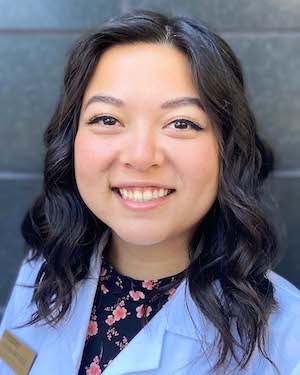
12 Weeks of Fieldwork ⟩
December 16, 2021, by Alyssa
Fieldwork
Welcome to a special edition of student blogs! For the next 12 days, we will be sharing a blog every day. To kick us off, I’m excited to tell you about my 12 weeks of fieldwork.
Level II fieldwork is a full-time 12-week clinical experience in any occupational therapy setting. As part of the Entry-Level MA, you do two of these in the 2nd and 3rd summer. I felt set on doing one of my Level IIs in a pediatric hospital, but many of those want someone who has already done a Level II in an adult hospital setting. So here was my criteria for searching for my first Level II: (1) Adult hospital setting (2) In a new and interesting place.
That was it really. I had little sense of what I wanted to get out of working with adults. In fact, I was terrified of working with adults. I had only ever worked with children and knew I loved it, so it never crossed my mind to pursue something else.
We can request fieldwork sites anywhere in the country, so I browsed the map of sites and picked Marianjoy Rehabilitation Hospital as my top choice. No one from USC had done their fieldwork there before, but it hit both of my criteria. It is a hospital with inpatient, outpatient, and day rehab programs in Wheaton, IL, a suburb of Chicago. And luckily - I got placed there! So after a lot of scrambling to find housing in Illinois, a state I had never been to, I packed up all my stuff and moved for the summer of 2021.
Here’s what my 12 weeks looked like.
Week 1: Observation, Loneliness, Exhaustion
To start out, I experienced a combination of excitement, overwhelm, and imposter syndrome constantly for the whole week. I was thankful that my site had weekly objectives for their fieldwork students, and week 1 was mostly observation. Even so, it was hard not to freak out knowing I would be actually doing what I was watching in a few short weeks.
It was tough adjusting both to a new role as a fieldwork student and to a new city at the same time. I only knew two people in the area, all the grocery stores were different, and I felt like a foreigner. I was subletting an apartment in Chicago and commuting 45-90min to and from the hospital. My hours were 6:30am - 3pm, but I tried to get there by 6. By the time I got home around 4:30/5, I’d eat dinner and immediately get ready for bed so there was no time to socialize. In all senses, I was exhausted.
Week 2: Leaning on Other People
By week 2 I was starting to feel more comfortable with the other people at the hospital. The OT schools in the Midwest had a different schedule, so the other fieldwork students were already halfway done when I came in. The conversations I had with them were the reassurance I needed that I was going to be fine.
The other therapists, nurses, and hospital staff were incredibly welcoming. I somehow picked a random site off a map and ended up at the nicest hospital in the country. It put me at ease knowing they were used to having students around and weren’t judging me for asking questions.
Above all, my fieldwork educator could not have been a better match for my learning style. He was great at giving constructive feedback in a way that was encouraging and he boosted my confidence when I was clearly very anxious.
Week 3: Sweaty
Each floor of the hospital was sectioned into different clusters of patients. I was placed in the inpatient brain injury rehab unit, where each therapist has about 7 patients on their caseload that they see mostly every day. At this point, I was expected to take on a couple of my fieldwork educator’s patients onto my own caseload. There was a lot of sweat, but I was really enjoying getting to connect more closely with the patients.
Week 4: Getting Into the Groove
As I gradually built up my own caseload each week, I started to feel more competent in my own skills and useful as a teammate to my fieldwork educator. Plus, after 4 weeks, I had finally adjusted to my new normal of being asleep by 9pm and waking up at 5.
Week 5: Emotional Support Ice Cream
Weeks 5 and 6 looked a lot like week 4. I added about 1 new patient to my caseload each week and spent more time planning/documenting/reviewing with my fieldwork educator. Objectively, the workload was increasing, but it was a comfortable pace and I was feeling good.
I was also improving my life balance, including prioritizing meal prepping and making more time to socialize (especially weekly Bachelor/ice cream nights with friends).
Week 6: Midterm Eval
Woohoo halfway through! Anxiety no more! Just kidding. You get evaluated at the end of week 6 and I was really worried for nothing. I had been getting consistent feedback from my fieldwork educator, and the evaluation session was helpful for us to elaborate on that feedback and set goals for the second half of the summer.
Weeks 7-11: Full Caseload, Feeling like I Belong
The gradually-building-up-to-a-full-caseload part of fieldwork was over. I was still working closely with my fieldwork educator, but the goal was for me to lead all the sessions. Even though I had become more comfortable with treatment planning, the nature of brain injuries is unpredictable and you never knew what the next patient would be like — which was both challenging and exciting as an opportunity to get creative working in a hospital.
The role of a fieldwork student at this point of the experience was an unfamiliar middle ground between student and professional. Obviously, I was still learning and building my skills, but at the same time I felt like I was really in it and working. I got to collaborate with an amazing PT and SLP, my documentation required minimal review, and I got such kind comments from patients who were surprised I was a student. I really felt like I belonged.
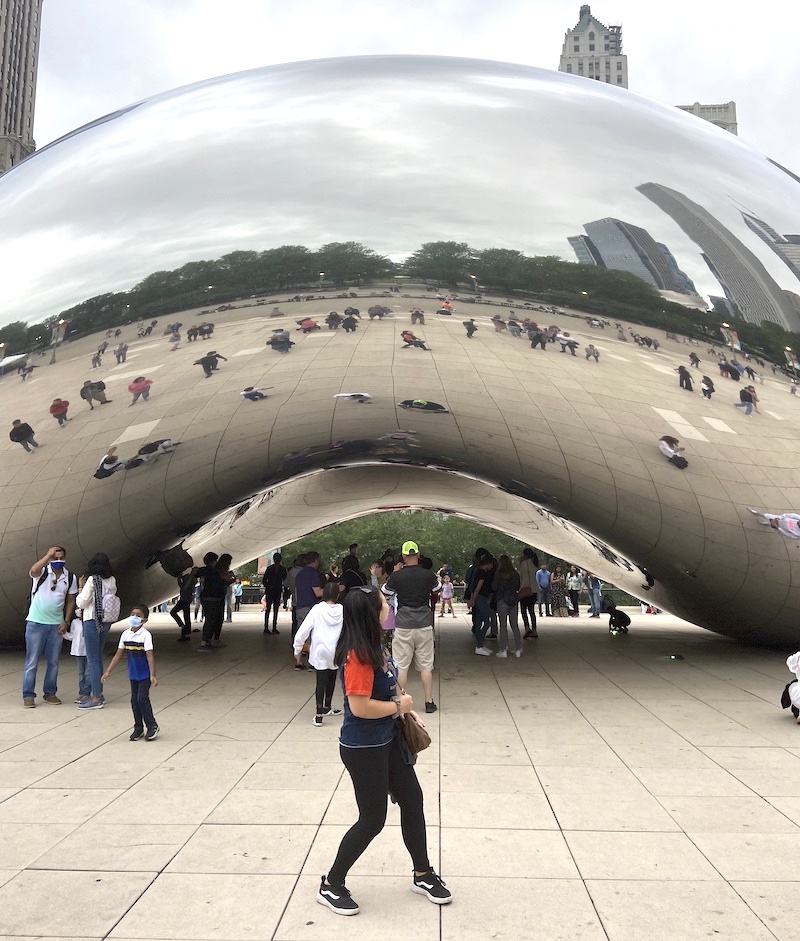
On the side, I crammed in some Chicago tourism.
Week 12: A Tearful Goodbye
I am a sprinkler when it comes to saying goodbye. On my last day, I cried on the way there, I cried saying goodbye to everyone, and I cried on my way home. I never thought I would love working in this setting so much, and it was so hard to think about it being over and going back to school for a year before my next Level II. Looking ahead, I still can’t wait to try out pediatric hospital work, but I’m happy to know there’s a part of me that likes working with adults too.
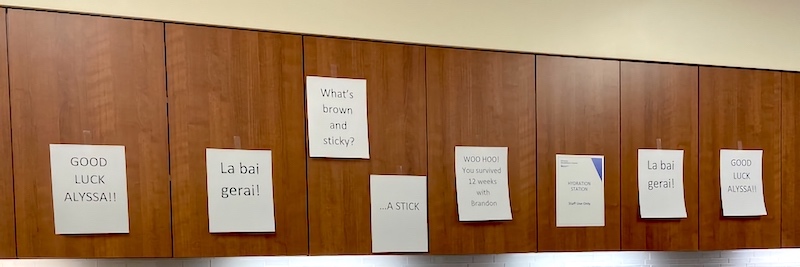
Signs up in the therapy gym for my last day with references to some inside jokes/memories from the summer.
If you’ve made it this far, thanks for reading! TLDR: My Level II fieldwork was expectedly challenging but unexpectedly awesome.
⋯
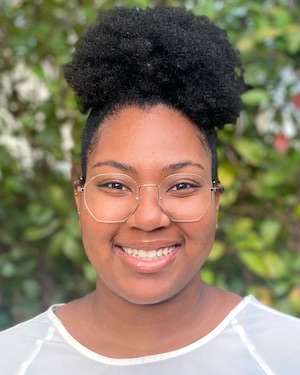
I’m So Happy That I DIDN’T Get It ⟩
November 4, 2021, by Kayla
Admissions Fieldwork
Let’s start off by setting the scene. It’s 2019, I’m in my first semester of the Master’s program and I just got my very first Level I fieldwork placement. I was so excited to be placed at Keck Hospital of USC and even more excited to experience the acute care practice setting. It was absolutely everything I could have hoped for and more, I learned so much from my clinical instructor and had amazing interactions with my patients and before fieldwork came to an end I had made up my mind. I needed to be a Keck OT resident.
Jumping forward to September of 2020, the time had come to apply and interview for the USC Chan Residencies. I was so excited to start taking steps towards something that I wanted for SO long. I did my best to prepare; I edited my personal statement for hours on end, I prepared answers to every possible interview question I could think of, and being selected for that residency was all I could think of. October comes, applications are due and I participate in residency interviews. November comes and residency offer letters are sent out . . . but mine never came.
I take pride in being honest and transparent so I would be completely lying if I say that I wasn’t devastated and felt like everything I had worked for up to that point had been a waste. I would also be lying if I said that it was an easy task to pick myself back up and figure out what was next for me. This was the first time in my academic career that I had to deal with not achieving a goal that I set for myself and it was a hard reality to accept. After a period of allowing myself to feel my emotions authentically and grieving what could have been, I accepted that this was not the end of my journey and that there was a path for me. I just had to go out and find it!
This experience gave me the opportunity to take a step back and be honest with myself and make a conscious effort to work on areas that needed some extra TLC. Although this insight came at the cost of not being selected for the Keck residency, I was on the path to being better equipped for future experiences. I learned how to communicate more efficiently, I learned to have more confidence when interviewing for positions, and most importantly, I learned how to advocate for myself and ask for what I wanted! On top of the opportunities to develop these invaluable professional skills, I had some amazing experiences that would never have happened if things had played out differently. I was able to complete an out-of-area Level II fieldwork over the summer, I have the opportunity to design and tailor my residency experiences to my specific interests, and I have the opportunity to define myself and begin my career in an entirely new city!
So rather than choosing to see this experience as a rejection, I have chosen to reframe it to see it as a redirection; one that I am so thankful for! I am a VERY firm believer that everything happens for a reason and that the things we go through are set in our path to help us become better versions of ourselves. I fell right into where I needed to be and I promise, you will too.
With all of this said, as residency offers begin to roll out and whether or not you receive the outcome you are hoping for I want to remind you to give yourself some grace, give yourself some extra love, and to reassure you that you are more than enough.
⋯
A Turning Point of My Life: From PKUHSC to USC ⟩
October 22, 2021, by Global Initiatives Team
Classes Fieldwork International What are OS/OT?
By Chen Gong, OTD
Editors Michelle Plevack and Abraham Ramirez
Entry-Level Professional Master’s students
What made you interested in occupational therapy?
My story with occupational therapy began in 2018 when I was an intern therapist in the Department of Rehabilitation Medicine at The Sixth Affiliated Hospital of Sun Yat-sen University in Guangzhou. As a beginner in OT, I attached importance to function-oriented treatment. However, my instructor encouraged me that I should pay more attention to the patient’s real life. Once, on a whim, I used a guitar to engage a patient with dementia in a music activity. The patient was relieved from the tiredness and boredom of previous therapy sessions. I could see tears in her eyes that this activity was meaningful to her. This incident has completely changed my opinion about OT, and let me really understand the meaning of occupation. Later, because of my love for OT, I came to the dual-degree OT program between Peking University Health Science Center (PKUHSC) and USC to continue my studies as an OTD student.
Why did you choose to continue your education with the OTD?
During my two years at PKUHSC, I gained a more systematic understanding of OT theoretical knowledge and gradually found the current situation of OT promotion in China. In many general hospitals, OTs have not found their own optimal practice area. OTs are unable to establish their professional identity and carry out meaningful acts of therapy. I deeply feel the inadequacy of my own ability. I look forward to further improving my professional level and leadership, exploring the OT market, and leading the development of OT in China in the future. I believe that studying at USC Chan will help me to achieve my goals.
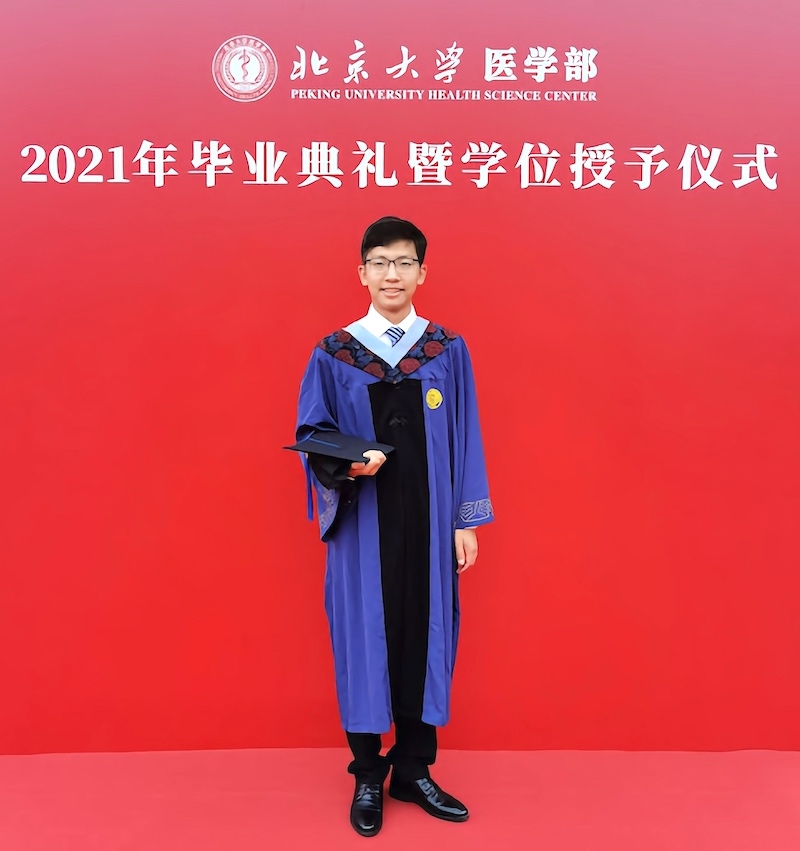
Master’s degree ceremony: Peking University, Beijing, China, Summer 2021
How has the transition from MSc in PKUHSC to OTD been?
China and the United States have very different cultural backgrounds. This ranges from the perspective of OT education, the way of communication between people, the atmosphere of class and work, and the pace of life here are all different from before. It has basically been like learning how to grow up and live again. Fortunately, I quickly adapted to the lifestyle and study context here. For the first semester, I am working with Dr. Emily Sopkin and Dr. Shawn Roll separately for pedagogy and research. Now I can actively act as a mentee.
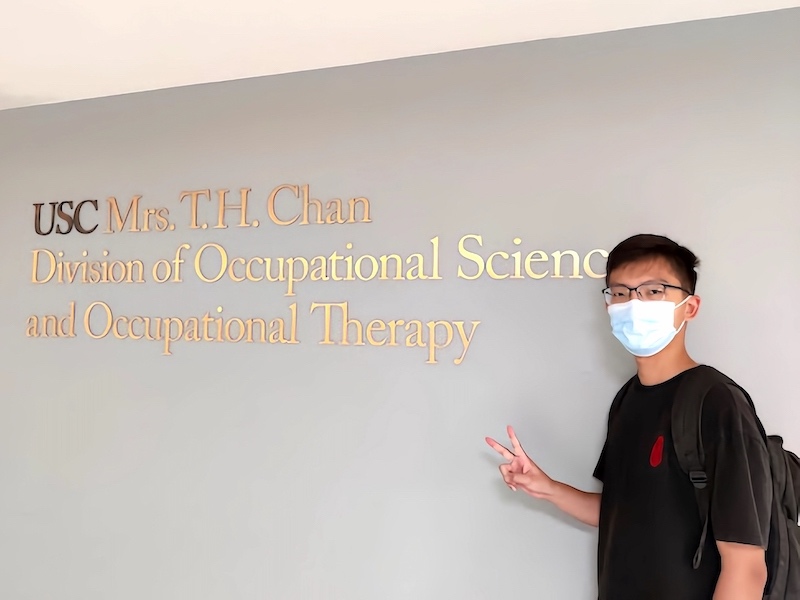
Chen’s First photo with USC Chan Division, Fall 2021
Describe your experience of OT school at PKUHSC vs USC.
Studying OT in PKUHSC for two years was really a very good experience. We completed the Master’s courses required by USC, and the way of teaching at PKUHSC was similar to USC Chan’s classes. In addition to the courses, we all completed a certain research project and published a paper in Chinese core journals. Through this, I have special appreciation for my mentor, Professor Ninghua Wang and her support for my research work. I also really appreciate my instructors Dr. Jane Liu, Dr. Liguo Qian, Dr. Hui Wang, Dr. Lily Xu and Dr. Buwen Yao, who were all students of USC Chan, and their efforts to localize these OT courses. Studying OT at USC is exciting. I can feel leadership everywhere. This immersion allowed me to think about how to develop my leadership. The Chan Division has its own unique experience in pedagogy, research, and clinical practice. I am sure I can learn something different from what I learned in PKUHSC, especially in clinical practice.
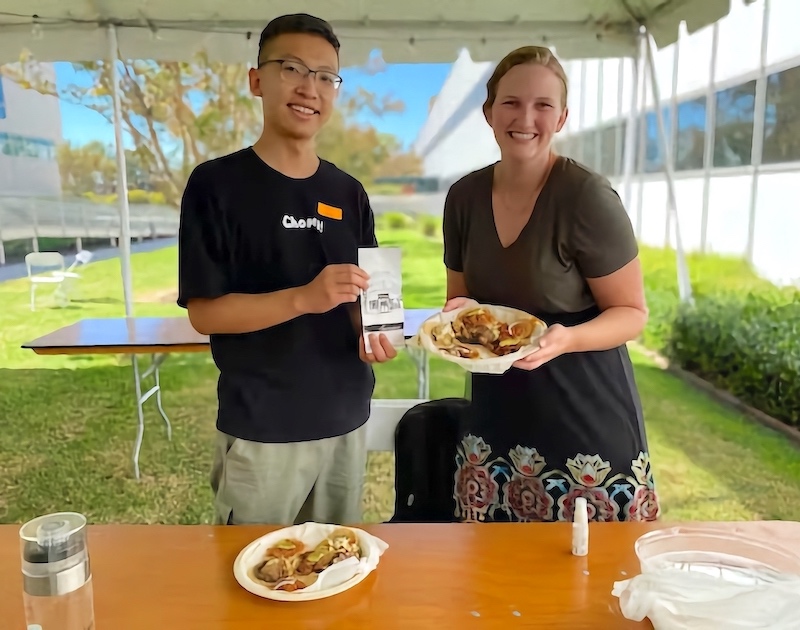
Unforgettable lunch with Dr. Emily Sopkin, Fall 2021
What do you think about your OTD residency so far?
It’s great! My residency for the first semester is mainly about pedagogy and research.
For my pedagogy residency I am a teaching assistant for OT 440: Kinesiology, which was also my favorite class when I was a Master’s student at PKUHSC. I enjoy this job. I developed a good mentoring relationship with Dr. Sopkin. I try to be creative by sharing knowledge related to the course with my students to help them learn from different perspectives.
For research, I’m working in the Musculoskeletal Sonography and Occupational Performance (MSOP) laboratory. Now I am gradually getting involved in existing research in the lab, which makes me feel fulfilled. As Dr. Roll said, “I don’t think it’s that important for you to learn a particular skill. It’s more important to immerse yourself in the research environment and see how research works.” I couldn’t agree more.
What kind of OT do you want to be in the future? Your plans/goals after OTD graduation? Or how will you promote OT services in China?
Actually, I want to be an active OT, who is purposeful, has great leadership skills and knows how to promote OT effectively. I also hope that I will be good at several clinical skills, which will help me establish my professional identity.
I plan to work in the OT department of a general hospital, mainly engaged in the occupational therapy of musculoskeletal and neurological disorders of the upper limbs and hands, and also undertake part of the teaching work, e.g. combining what I learned here with China’s clinical context and then trying to establish a practical framework of occupation-based hand therapy education. As for research, I will try to design and lead research projects and apply for national funding.
⋯
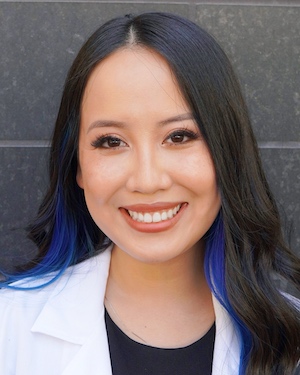
Dancing In the Rain ⟩
September 15, 2021, by Teresa
Fieldwork What are OS/OT?
In the Vietnamese language, there is a phrase to offer your condolences to someone when a loved one passes — “chia buồn” — which roughly translates to, “I share in your sadness.” I’ve always found it poignant and have yet to find a phrase in English which can succinctly convey the same sentiment; that if the weight feels too much for one person to bear, please allow me to help you carry it.
This past summer, my grandpa passed away, peacefully and surrounded by loved ones after many years of suffering many strokes. Recounting his life, I realized I had known him as ill for more years of my life than I had not. Growing up, most of my interactions with him existed within the confines of a skilled nursing facility. This past summer, I was also completing my first Level II fieldwork experience in a skilled nursing facility.
During his celebration of life, my family went around the room sharing stories about grandpa. After my dad retired, he took upon the role as an informal caregiver to my grandpa and shared how much grandpa hated my dad’s visits to the nursing facility because he knew that meant it was time for a bath. My mind went, “OT!” but everyone took the light-hearted story for what it was and laughed, including myself. A few weeks later during fieldwork, I was notified that a family member wanted my patient to work on bathing during OT that day.
My patient did not want to work on bathing during OT that day.
They were protesting against the task, bargaining with me, and apologizing for how their disability was inconveniencing my work. I thought of my grandpa and how I would want a therapist to approach the situation if it was him. In places like skilled nursing facilities, there is so much loss of control. People have little to no control in their routine, what and when to eat, what medications they take, and how quickly (or slowly) their body is changing. So when a bright-eyed young OT student comes knocking on their door, asking if they want to take a bath, they say “no” — and you let them, because it returns just a tiny sliver of control to their life.
On several occasions, concerned family members entered the rehab gym with questions about their loved one’s progress during therapy. While others avoided eye contact so as not to get flagged down with questions, I’d approach them and provide updates as best I could. Afterwards, therapists would say to me, “You’re a student — you didn’t have to do that” to which I would reply, “I wanted to.” Just as much as I want to share in victories with patients and their families, I want to share in their sadness with them as well because it’s how I would want my own loved ones to be treated by providers.
Dr. Rafeedie often says how “occupational therapists teach people how to dance” but I’d like to add a stipulation — that sometimes, we teach people how to dance in the rain. That sometimes, in even the bleakest of places, you can teach people how to flip their outlook on life, flip the way they move and feel, and flip the way the system works because as occupational therapists, you’re well-equipped to. OTs possess the impeccable ability to take an unfortunate situation and turn it into something wonderful.
I lost my grandpa this summer yet somehow, I still saw him a lot. I saw him through my patients and the cheesy jokes they’d crack during our sessions. When they encouraged me to work hard in school and finish strong, I heard my grandpa cheering me on. On their families’ faces, I saw my own family’s faces — the looks of desperation, of encouragement, of sorrow, of hopefulness. To whoever is reading this with a heavy heart: I share in your sadness with you, whatever it may be. The rain is clearing and the sunshine is coming, I can feel it. Let’s dance.
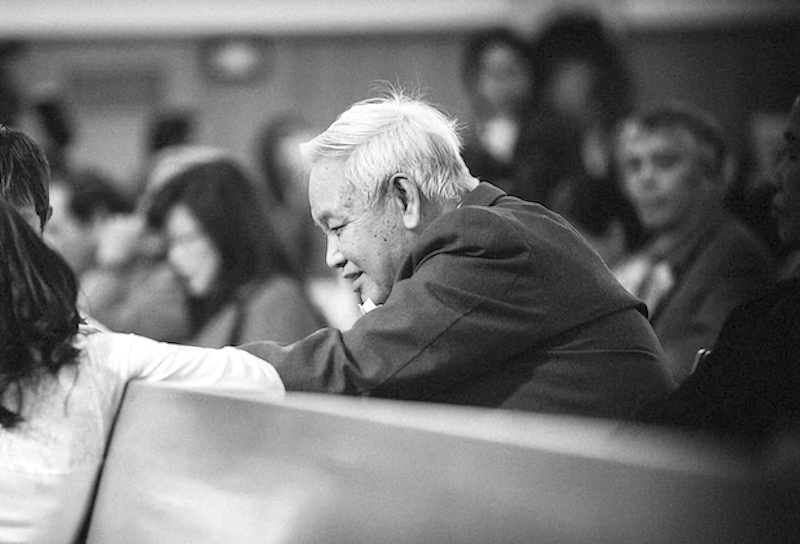
In loving memory of Thomas Dương Đức Thanh
⋯

You, Me, and the OTD ⟩
September 5, 2021, by Kayla
Admissions Fieldwork What are OS/OT?
Being a Master’s student at USC Chan was an amazing experience filled with lots of learning, involvement in an amazing community, and one-of-a-kind experiences. So there’s no surprise that making the decision to apply and complete the Post-Professional OTD was quite simple. To me, this program means more than continuing my course of study or earning the distinction of “Dr”. To me, this program is all about personal and professional growth! Over the course of this next year I hope to work to reach a place where I will be prepared to achieve my professional goals and transform into the best therapist that I can be.
Along with choosing to complete the OTD with the above in mind, I could not pass up the opportunity for the amazing mentorship opportunities that are built into the program! Through my fieldwork experiences during the Entry-Level Master’s program I learned that I really really (really) love acute care OT. As I did my research on the different residency tracks offered, I was looking for an experience that would allow for specialized mentorship. I wanted a track that could support me while I work on my weaknesses and amplify my strengths to help me become a better therapist within my specific setting. The advanced clinical practice track consisted of everything that I was looking for and proved to be the perfect fit for me.
In the time preparing to embark on this journey and in the very short time since classes have begun, I have gained a deeper understanding of what I want to get out of this experience and ultimately made important decisions about my future career. That is honestly the biggest difference between the Master’s program and the OTD program. As a OTD resident you have the opportunity to decide and design your experience, from the practice context to your focus during your doctoral year. This freedom to tailor your residency plan is what makes this experience so meaningful and unique. And don’t worry, if the sound of that much freedom is off-putting to you, you are not alone during this experience!
Through all of the moments of feeling overwhelmed, doubting myself, and wondering if I would be able to find a residency site that was everything I wanted, I am so grateful that I stayed the course and found the site that is perfect for me! I have already gained so much so early in this journey and am excited to see where it takes me. More than anything, I am excited to be your OTD ambassador and be a part of your OTD journey as well!
⋯





